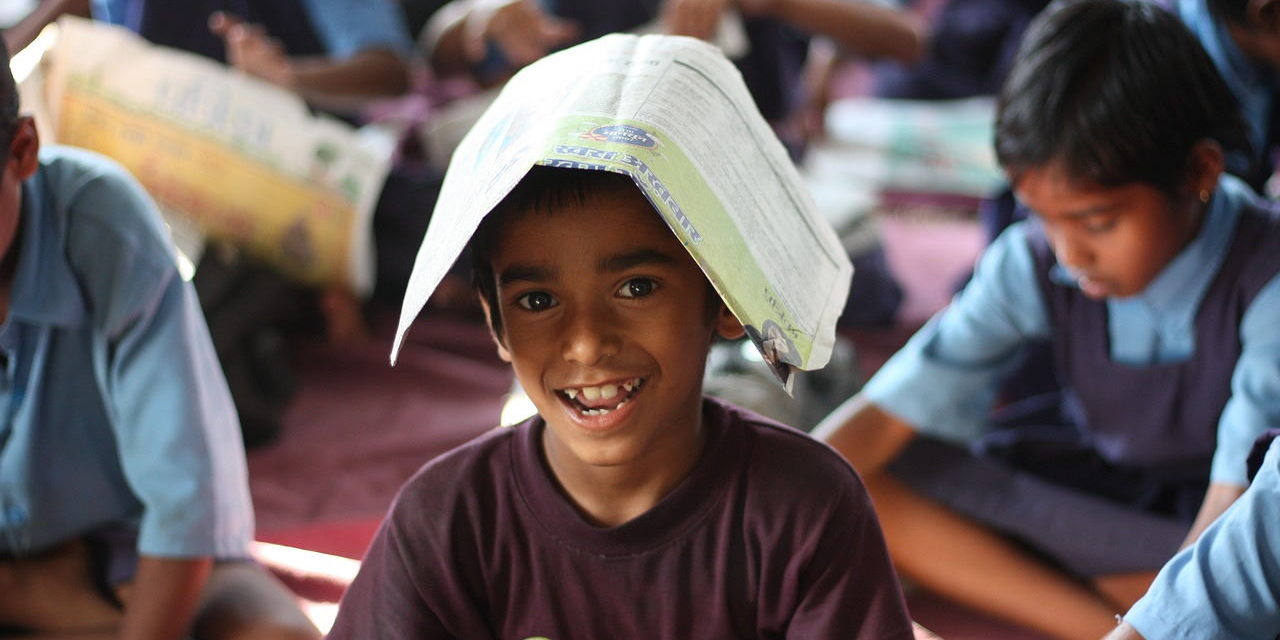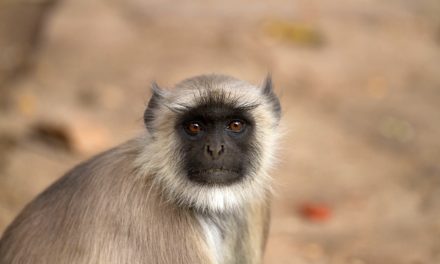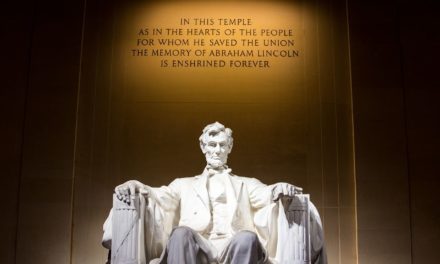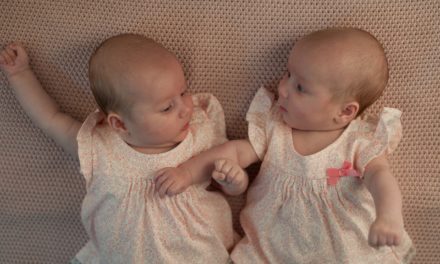Warming Up!
Chit-Chat
Discuss in your group.
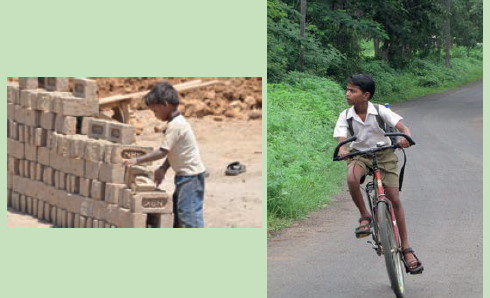
What difference do you notice in the two images?
Ans: In the first image, the child is working as a labourer. In the second image, a child is going to school in a cycle.
Which of the two situations, should change?
Ans: The first situation where the child is working as a labourer should change.
How and when can the situation change?
Ans: The situation can change if firstly the government makes it mandatory for all children to go to school and also provides cheap or free education. We all as members of society should also help all children get an education.
How can you, as a student, contribute and help make a difference to the needy children?
Ans: As a student, I can help teach needy children, provide them with my old books and also guide them in their school work.
- (A) A good well – organized speech contains the following characteristics and steps.
- A speech should be well – planned.
- The language used should be suitable to the audience.
- It should have the right duration.
- It should be supported with good examples, episodes or visual aids, where possible.
(B) Refer to Page 26 for a reference to the steps to be followed in the speech and do the activity given below.
Read the expressions given below and insert them in your notebook in the proper boxes, as shown below:
Direct Answers Given Below:
Greeting/Salutation
- (c) Hon. chief guest, eminent dignitaries, respected management and staff, student – friends
- (i) Good Morning, one and all present today.
Introduction
- (g) Today, I would like to put forth my views on ………………
- (h) The renowned personality xyz says “………………”
- (k) If we think about the situation around us, we notice that ……..
Body of the speech
- (a) Imagine what will happen after ten years.
- (b) I would like to share with you an example from my own experience.
- (d) The research report says that……………
- (e) I don’t understand why we are so negative about this issue.
- (l) Let me explain this to you…..
Conclusion
- (f) Think again and again and then move forward.
- (j) I would like to express my gratitude towards the organisers of this function for giving me opportunity…….
From the Chapter Pages
What does the speaker feel honoured to recite?
Ans: The speaker feels honoured to recite a mantra from the ancient texts of wisdom, Vedas.
How does the speaker describe his journey from India to Norway?
Ans: The speaker describes his journey from India to Norway as a journey from the great land of Lord Buddha, Guru Nanak and Mahatma Gandhi. He described India to Norway as a connect between the two centres of global peace and brotherhood, ancient and modern.
What terrible thing was the Sudanese child forced to do?
Ans: The Sudanese child was forced to kill his friends and family as part of his first training lesson for extremist militia.
What does Satyarthi refuse to accept?
Ans: Satyarthi refuses to accept that that the world is so poor, when just one week of global military expenditure can bring all the children to classrooms. He refuses to accept that all the laws and constitutions, police and judges are unable to protect our children. He also refuses to accept that the shackles of slavery can ever be stronger than the quest for freedom.
What is the only aim in life for Kailash Satyarthi?
Ans: The only aim in life for Kailash Satyarthi is that every child is free to be a child,
- free to grow and develop,
- free to eat, sleep, and see daylight,
- free to laugh and cry,
- free to play and learn,
- free to go to school, and above all,
- free to dream.
What are the signs of progress that the speaker mentions?
Ans: The signs of progress that the speaker mentions is that we have reduced the number of out-of-school children by half. We have reduced the number of child labourers by a third and we have reduced child mortality and malnutrition, and we have prevented millions of child deaths.
What social role are the three ‘daughters’ playing?
Ans: The social role being played by the three daughters are that they are rising up and choosing peace over violence, tolerance over extremism, and courage over fear.
What lesson does the story of the lion and the tiny bird teach us?
Ans: The story of the lion and the tiny bird teaches us that each one of us can make a difference, no matter how small we are if we just do our bit.
What did millions of individuals demand eighteen years ago?
Ans: Eighteen years ago, millions of individuals marched across the globe and demanded a new international law for the abolition of worst form of child labour.
What problems do the poor children face?
Ans: The poor children face the problem of child labour, being kidnapped and dying of deadly diseases such as Ebola.
Why does the eight year old girl’s question ‘shake’ Mr.Satyarthi?
Ans: The eight year old girl’s question shakes Mr.Satyarthi because her angry question makes him think what we were doing? What were we waiting for and how many girls will we allow to go without rescue?
What matters according to Satyarthi?
Ans: According to Satyarthi, every single minute matters, every single child matters, and every single childhood matters.
What does Satyarthi challenge?
Ans: Satyarthi challenges the passivity and pessimism surrounding our children. He challenges this culture of silence and this culture of passivity, this culture of neutrality.
What was Mr.Satyarthi’s vision as a child?
Ans: As a child, Mr.Satyarthi had a vision of tomorrow. A vision of the cobbler boy he met outside his school sitting with him in his classroom.
What was the response of the boy’s father? What was Satyarthi’s reaction to it?
Ans: The response of the boy’s father was that he had never thought about sending his son to school as they were born to work. Satyarthi’s reaction to the response was that it made him angry.
What is your vision of tomorrow?
Ans: My vision of tomorrow is a world where every child is able to go to school and get a good education. A world where every child is able to play and be a child without worrying about violence and diseases.
What rights should every child have, in our times?
Ans: In our times, every child should have the right to life, right to freedom, right to health, right to education, right to safety, right to dignity, right to equality, and right to peace.
What does Mr. Satyarthi request the listeners to do?
Ans: Mr.Satyarthi requests the listeners to put their hand close to their heart. Close their eyes and feel the child inside of them.
According to Mr.Satyarthi, who are calling on us?
Ans: According to Mr.Satyarthi, thousands of Mahatma Gandhis, Nelson Mandelas and Martin Luther Kings are calling on us.
English Workshop
1. Name the following.
(a) The persons to whom Kailash Satyarthi gives the highest credit of his honour.
Ans: Kaalu Kumar, Dhoom Das and Adarsh Kishore from India and Iqbal Masih from Pakistan.
(b) The greatest personalities from the land of Buddha.
Ans: Guru Nanak and Mahatma Gandhi.
(c) The ‘Daughters’ of Kailash Satyarthi mentioned in his speech.
Ans: Malala, two daughters named Kayanat, Shazia and the daughters from Africa.
(d) The foreign activists of equal rights, mentioned in the speech.
Ans: Nelson Mandela and Martin Luther King.
2. Mention the social issues highlighted by Kailash Satyarthi in his speech. One social issue is given for you.
a) Child labour
b) Slavery
c) Trafficking
d) Child Marriages
e) Sexual Abuse
f) Illiteracy
3. Complete the following diagram/chart.
The aim in life of Kailash Satyarthi is that every child is free ……
- To grow and develop.
- To eat, sleep, and see daylight.
- To laugh and cry.
- To play and learn.
- To go to school.
- To dream.
- To be a child
4. Complete the following web-chart.
An appeal of Kailash Satyarthi
- Let us together create knowledge for all that benefits all.
- Let us globalise compassion.
- Let us unite the world through the compassion for our children.
- Let us democratise knowledge.
- Let us universalise justice.
- Let us march from ignorance to awakening.
5. Find out the describing words used for the following nouns and make your own sentences by using any three combinations.
(a) Supreme sacrifice
Our soldiers make the supreme sacrifice so that we may live a free life.
(b) Beautiful faces
The beautiful faces of our children should always bear a smile.
(c) Extremist militia
We all need to be careful and eradicate extremist militia.
(d) Great challenge
Our nation faces great challenges when it comes to education for all.
(e) Rapid globalisation
Information spreads quickly in the age of rapid globalisation.
(f) Intergovernmental agencies
Intergovernmental agencies are important for the smooth functioning of our nation.
6. Choose the correct option and write in front of the given word.
(a) divinity : godliness
(i) goodness (ii) godliness (iii) god – fearing
(b) extremist : militant
(i) militant (ii) robber (iii) spy
(c) culminate : rise to a peak
(i) destroy (ii) succeed (iii) rise to a peak
7. (A) What will you do in the following situations?
(a) If you see a child working in a restaurant
Ans: I will ask the child why he or she is working in the restaurant and try to contact his or her parents.
(b) If you find a child working at a construction site
Ans: I will alert the authorities as such form of child labour is illegal.
(c) If you find a child working at a brickwork site
Ans: I will alert the authorities as such form of child labour is illegal.
(d) If you come across a beggar child
Ans: I will alert an NGO or government organization so that they can help the child.
(B) Write any 2 efforts that you can make to enrol deprived children/out of school children into a school. One is given for you.
(a) I will persuade parents of such children to send them to school.
(b) I will ask NGO’s and other organizations to help the children.
(c) I will try to arrange for scholarships so that these children can go to school.
(d) I will check with schools whether they have any seat under the right to education act.
(e) I will start an awareness campaign so parents know why it is important for their children to go to school and for the community to help such children.
8. Today, it is time for every child to have a right to –
- Education
- Freedom
- Health
- Safety
- Dignity
- Equality
- Peace
- Life
- Dream
9. Make a list of Indian Nobel Laureates.
- Rabindranath Tagore
- Sir Chandrasekhara Venkata Raman
- Har Gobind Khorana
- Mother Teresa
- Subrahmanyan Chandrasekhar
- Amartya Sen
10. Make a list of prestigious awards in India.
Civilian Awards
- Bharat Ratna
- Padma Vibhushan
- Padma Bhushan
- Padma Shri
- Nari Shakti Puraskar
Highest Gallantry Awards
- Paramveer Chakra
- Maha Vir Chakra
- Vir Chakra
- Ashoka Chakra
- Kirti Chakra
11. Make meaningful sentences by using the following phrases.
(a) in the pursuit of
Ans: We must maintain our resolve in the pursuit of equality and dignity for all.
(b) to be afraid of
Ans: To be afraid of failure is not an option when it comes to pursuing your dreams.
(c) to give up
Ans: To give up so close to your goal is such a waste of effort.
12. Write minimum 5 hidden words of more than 4 letters from- ‘intergovernmental’
- Mental
- Govern
- Inter
- Government
- Rent
13. Imagine your school invites Malala to preside over celebration of ‘Children’s Day’. Draft a welcome speech for this noble young girl. Gather her biodata from the Internet.
Answer:
Respected Principal, teachers, my dear friends and of course our guest of honour Ms. Malala Yousafzai, it gives me great pleasure to stand in front of your today on this wonderful occasion of Children’s Day. This day was already special for us students for a number of reasons, but the presence of Nobel Peace Prize winner and an inspiration to all children around the world, Ms. Malala Yousafzai has made this day even more momentous for us all.
Malala, on behalf of everyone, I welcome you to our school. We are indeed indebted to you for gracing us with your presence. We all know your story of grit and determination. From being a victim of extremists in Pakistan as a child, you have gone on to not just complete your education from the prestigious Lady Margaret Hall of the University of Oxford, but you are today one of the leading activists for female education. Your journey from such harsh environment to becoming a global icon is something that will be studied for generations to come. You are one of the most inspiring persons right now for us all. Just your presence here today motivates us to study and lead a meaningful life.
Who would have thought that when you were born in 1997 that you would one day go from such humble beginnings to such great heights. What is incredible about your story is that you defeated your detractors by the power of education and determination. You did it without any kind of violence or physical retaliation. Yours is the perfect example of the saying that a pen is mightier than a sword.
Malala, you coming to our school will no doubt encourage each one of us to study hard. To know the true meaning of education and how people have to fight for something that we take for granted. Your story has made us realize why we should not just complete our own education but also help other deprived children to go to school. We need work together to make a genuine lasting change in our country and this world.
Malala, thank you so much for being here and inspiring us. Thank you for fighting for all students. Thank you for helping underprivileged girls all across the world to dream and go to school someday. I hope you will enjoy your time with us and enjoy the Children’s Day celebration we have planned today.
14. Use the same words as a noun and a verb to make meaningful sentences.
March
Noun: We will join the march of the soldiers.
Verb: Today we will march through the city.
Honour
Noun: It is our honour that you have arrived.
Verb: We should always honour our ancestors.
Credit
Noun: It is his credit that he finished the job so quickly.
Verb: We shall credit you for the work.
Stitch
Noun: The stitch on the t-shirt had started coming out.
Verb: I will stitch you a new pair of trousers.
Language Study
1. (a) Match the sentences given in part ‘A’ with the sentences given in part ‘B’.
Note the differences in structure.
Direct Answer Given Below:
(1) He was kidnapped by an extremist militia. – (b) An extremist militia kidnapped him.
(2) The child was forced to kill his friends and family. – (a) They forced the child to kill his friends and family.
(b) Observe the following underlined phrases. Here ‘have / has’ are followed by the past participle form of the verb. This construction indicates the perfect present tense. Find more such sentences from the speech.
(1) We have made progress in the last couple of decades.
(2) We have prevented millions of child deaths.
(3) It has happened.
(4) I have freed a child from slavery
(5) I have looked into their frightened and exhausted eyes.
(6) We have reduced the number of out-of-school children by half.
(c) In the following sentences the underlined words are called infinitives. Find such examples from the speech and underline the infinitives.
(1) Every child is free to grow.
(2) I refuse to accept that all the laws and constitutions, police and judges are unable to protect our children.
(3) “If we are to teach real peace in this world… we shall have to begin with the children.”
(4) To put an end to all forms of violence against children.
(5) I want you to see and feel this TODAY inside you.
(6) He was forced to kill his friends and family.
(d) Pick from the lesson, the Antonyms of
Ignorance – Awakening
Immortality – Mortality
Deny – Accept
Violence – Peace
Well-known – Unknown
Slavery – Liberty
(e) Do as directed.
(i) Make nouns of the following.
deliberate – deliberation
prescribe- prescription
distant – distance
organise – organization
violent – violence
tolerant – tolerance
extreme – extremist
educate – education
globalise – globalisation
(ii) Make verbs of the following.
democratic – democratise
universal – universalize
global – globalize
(f) Change the following sentences to the other Degrees of Comparison, without changing meaning.
(a) The biggest challenge knocking on the doors of human kind is fear and intolerance.
(i) No other challenge knocking on the doors of human kind is as big as fear and intolerance.
(ii) Fear and intolerance are bigger than any other challenge knocking on the doors of human kind.
(b) The Nobel Prize is one of the greatest honours in the world.
(i) Very few honours in the world are as great as The Nobel Prize.
(ii) The Nobel Prize is greater than any other honour in the world.
Types of Sentences
A sentence is a group of words that expresses a complete idea. Sentences can be classified in various ways. The following is a classification of sentences.
(i) Assertive sentence (Statement) : A sentence that makes a statement or assertion.
For example, ‘There are many villages in India.’
(ii) Interrogative sentence : It is a sentence that asks a question. It has two sub-types.
Yes/no Interrogative sentence :
It generally begins with a helping verb or an auxiliary verb and can be answered by saying ‘Yes’ or ‘No’. For example, ‘Are you coming with us?’
Wh-Interrogative sentence : It begins with a wh – word, such as ‘who’ and ‘why’ and cannot be answered by saying ‘yes’ or ‘no’.
For example, ‘What is the time?’
(iii) Imperative sentence : It expresses commands, requests etc. It generally begins with a verb.
For example, ‘Open your books’.
(iv) Exclamatory sentence : It expresses a strong feeling.
For example, ‘How swiftly the river flows !’ ‘What a shame !’

